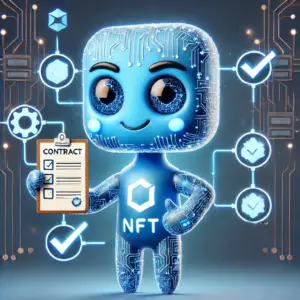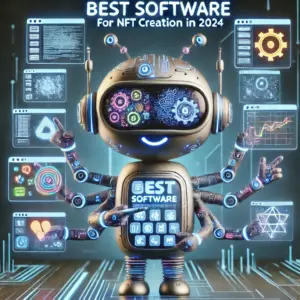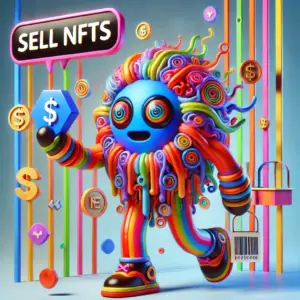Non-fungible tokens (NFTs) have emerged as a transformative technology, revolutionizing the way we create, own, and exchange digital assets. While initially gaining traction in the realm of art and collectibles, NFTs have quickly expanded their reach, offering a plethora of potential applications for businesses across industries.
Unlocking the Power of NFTs for Businesses
NFTs offer a unique set of characteristics that make them particularly well-suited for business applications. These include:
- Uniqueness and Scarcity: Each NFT is a unique digital asset, with its own distinct identifier on the blockchain, ensuring authenticity and scarcity.
- Immutability and Traceability: NFTs are stored on a secure, decentralized blockchain, making them tamper-proof and providing an immutable record of ownership history.
- Programmable Functionality: NFTs can be programmed with various functionalities, enabling them to interact with other smart contracts and systems.
Exploring NFT Use Cases for Businesses
The potential applications of NFTs for businesses are vast and rapidly evolving. Let’s delve into some of the most promising use cases:
1. Digital Collectibles and Fan Engagement
NFTs have revolutionized the world of collectibles, providing a secure and transparent way to own and trade digital assets. Businesses can leverage this technology to create unique digital collectibles, such as exclusive artwork, merchandise, or virtual items, catering to passionate fans and collectors. These collectibles can be sold, traded, or even integrated into gaming experiences, fostering deeper engagement with customers.
2. Tokenized Access and Membership
NFTs can be used to create exclusive access passes or membership tiers, granting holders special benefits and privileges. Businesses can offer early access to products, VIP experiences, exclusive content, or even discounts and rewards to NFT holders. This strategy not only incentivizes loyalty but also strengthens brand affinity and community building.
3. Ticketing and Event Management
NFTs can transform traditional ticketing systems, providing a more secure, transparent, and verifiable way to sell and manage event tickets. NFT-based tickets eliminate the risk of counterfeits and provide a tamper-proof record of ownership, ensuring authenticity. Additionally, NFT tickets can be integrated with smart contracts to enable dynamic pricing, personalized experiences, and even secondary market transactions.
4. Supply Chain Management and Authentication
NFTs can revolutionize supply chain management by providing a secure and verifiable way to track and authenticate products. By embedding NFTs into product records, businesses can ensure the authenticity of their goods from origin to consumer, combat counterfeiting, and enhance brand credibility.
5. Gamified Experiences and Virtual Worlds
NFTs are playing a significant role in the development of gamified experiences and virtual worlds. Businesses can create unique in-game items, avatars, or even entire virtual worlds that can be traded and owned as NFTs. This opens up a new realm of possibilities for immersive gaming experiences, player-driven economies, and community engagement.
6. Charity and Fundraising
NFTs have emerged as a powerful tool for charitable fundraising. By creating and selling unique digital artworks or collectibles, businesses can raise funds for worthy causes while providing collectors with unique digital assets. This approach not only generates donations but also raises awareness about the causes supported.
7. Brand Building and Marketing
NFTs can be strategically employed for brand building and marketing purposes. Businesses can create interactive NFT experiences, offer exclusive perks to NFT holders, or even incorporate NFTs into their marketing campaigns. This innovative approach can capture attention, engage new customers, and enhance brand recognition.
8. Licensing and Royalty Automation
NFTs can streamline the licensing and royalty process for content creators and businesses. By embedding smart contracts into NFTs, creators can automatically receive royalties whenever their works are resold, ensuring fair compensation and creating a more transparent ecosystem.
Essential Considerations for Implementing NFTs
As with any new technology, there are important considerations when implementing NFTs in business:
- Clear Value Proposition: Businesses should clearly define the value proposition of their NFT offerings, ensuring that they align with their target audience’s interests and expectations.
- Community Engagement: Actively engage with the NFT community to understand market trends, identify potential opportunities, and build brand awareness.
- Legal and Regulatory Compliance: Stay informed about evolving legal and regulatory frameworks related to NFTs to ensure compliance and protect intellectual property rights.
- Technical Expertise: Partner with experienced NFT developers and platforms to ensure a smooth and secure deployment of NFT initiatives.
Conclusion
NFTs have emerged as a transformative force, offering businesses a wealth of opportunities to engage with customers, enhance brand loyalty, and






